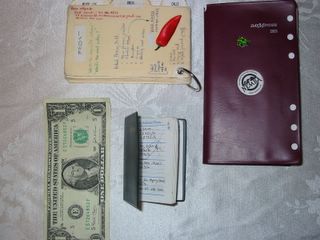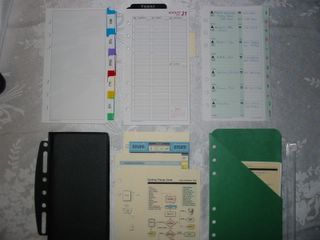Saturday
Sep172005
Getting Things Done stages - Saints, Prophets, and Evangelists?
 Saturday, September 17, 2005 at 2:23AM
Saturday, September 17, 2005 at 2:23AM
No, I don't consider myself any of those. But here's the story: I've been exploring coaching others in David Allen's Getting Things Done: The Art of Stress-Free Productivity (AKA GTD), and I would like to characterize the stages (or phases) of adoption of ideas like this. I strongly suspect there's a standard psychological framework for this, and I hope that someone can point me to it. I'm interested because I'm clearly in something like an evangelist stage, and I'm curious about whether others have gone through similar phases. Here's a first pass at some of the stages I've experienced:
I'd love hear your thoughts...
- exposure (my boss told me about the book, and was excited about it)
- resistance (got the book, but let it sit for a few months)
- learning (read the book, started asking around about it)
- excitement (loved the methodology and ideas)
- commitment to adopt (implemented it)
- personal benefit (multiple improvements)
- deeper exploration (trying different systems)
- desire to share (increasing GTD focus of this blog)
- evangelist (convinced it's the One True ____ - god, system, etc.)
- generalization (considering GTD influences, other systems)
- comfort (wizened practitioner?)
...the steps of the process [...] may follow the pattern shown below.I particularly like this bit:
Step One - Self Questioning Phase
Step Two - Self Doubt Phase
Step Three - Acceptance of the Solution Phase
Step Four - Acceptance of Obligatory Lifestyle Phase
Step Five - Financial Commitment Phase
Step Six - Personal Commitment Phase
Step Seven - Wholehearted Commitment (Holiness) Phase
... If the believer is able to continue to live according to this inner prompting as one's primary source of meaning and personal direction, he or she may become a saint, a prophet, and evangelist - a person wholly consumed by his or her religion.Scary! Wired recently asked if GTD is a cult. If so, what does that make us self-appointed advocates? I wouldn't apply any of the above labels to myself in the literal sense (e.g., evangelism: "Militant zeal for a cause"). However, I have been surprised that, for a book on stress-free productivity, I've found it provides a framework for understanding the world, and has helped me explore, develop, and have a heck of a lot of fun.
I'd love hear your thoughts...




